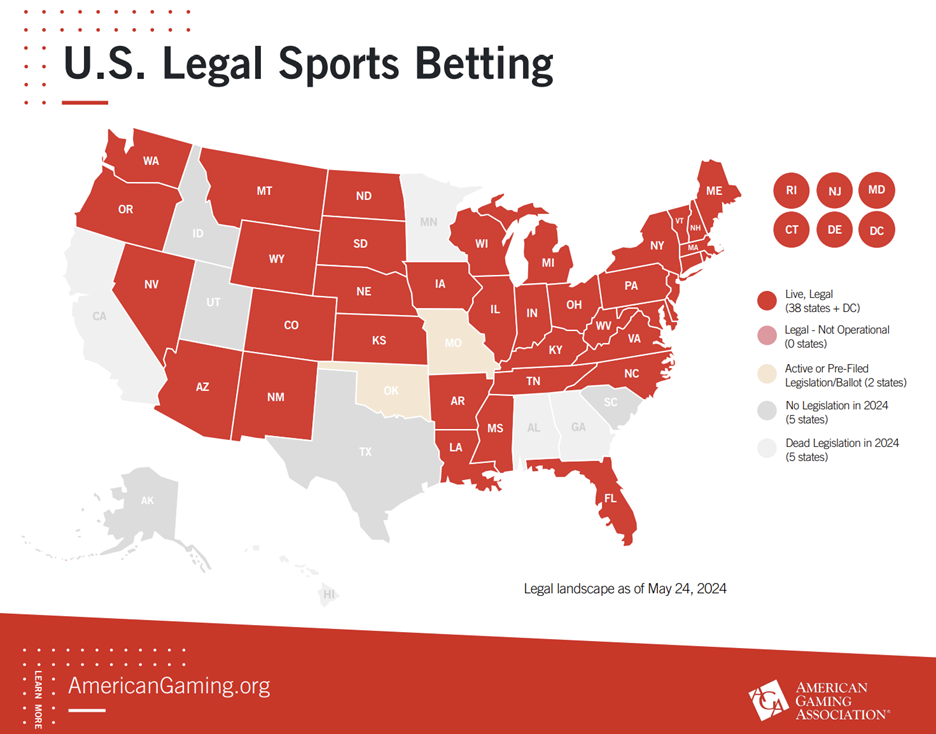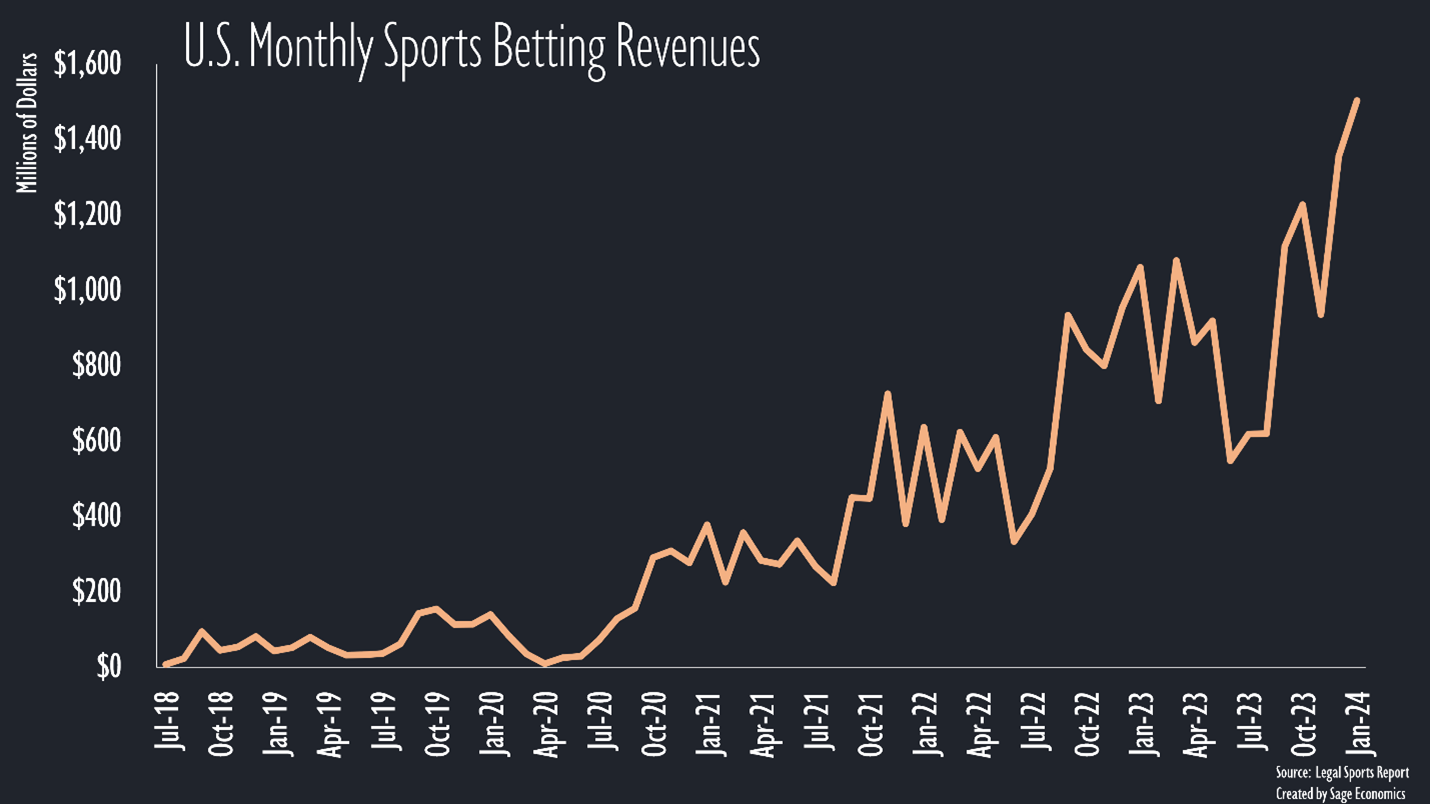The Rise of Sports Betting
Some quick and scattered thoughts
Nevada legalized sports betting in 1931 and was, for nearly a century, the only state that allowed it. That changed in June 2018 when Delaware became the second state to legalize sports betting.
It took 89 years to go from one state with legalized sports betting to two. It took less than six years to go from two to 38 states (and DC).
As of this writing, every contiguous U.S. state either allows sports betting or borders at least three states that do. The flood gates aren’t just open, they’re off the hinges.
Why this happened
First, this is a billion dollar industry with extremely effective lobbying. Casinos/gambling companies spend between $35-40 million a year on lobbying. That’s over twice as much as gun rights and gun controls groups combined and 20% more than the alcohol or tobacco industries.
Second, sports gambling generates massive tax revenues. Over the first seven months of 2024, states have collected about $1.5 billion in sports gambling taxes (and that includes some incomplete reporting; the actual total is probably much higher).
To put this into context, Maryland is on pace to collect enough sports betting taxes in 2024 to support the salaries of more than 1,100 teachers (by my back of the envelope math).
Third, it’s fun.
You win some (or the books do, anyway)
In June 2018, the nationwide sports betting handle (the amount wagered) totaled $310 million. By January 2024, the monthly handle had surged to $13.9 billion, an increase of roughly 4,400%.
Industry revenues increased at an even faster pace, rising from $24.6 million in June 2018 to $1.5 billion in January 2024.
For context, the 2020 presidential election cost a record $14.4 billion. In the not so distant future, Americans will be wagering that much on sports every month.
You lose some, and way more than I thought you would lose
The extent of the damage legalized sports betting causes to household finances is pretty staggering, especially when mobile sports betting is allowed (30 states plus DC so far).
Three to four years after a state legalizes online sports betting:
Credit scores fall by an average of 1.0%.
Bankruptcies increase 25-30%.
The amount of debt sent to collections rises 8%.
Auto loan delinquencies rise 9%.
When a state only legalizes in-person sports betting, the effects are more palatable; a 0.3% decrease in credit scores, no significant effect on bankruptcies or debt collections, and a 5% increase in auto loan delinquencies.
Another recent study found that sports betting reduces investment, not consumption, for low income households, with every $1 bet on sports leading to $2 fewer invested.
So the tradeoff is funding for a bunch of teachers or police officers or whatever but at the cost of some households’—particularly those with less wealth—financial wellbeing.
Legislators don’t seem to mind this tradeoff.
Sometimes you win so much that they don’t let you play
“It’s well-known that most sportsbooks take aggressive steps to counter winning gamblers, usually by severely cutting their betting limits or 86ing them entirely,” and it’s not just how much you win that gets you banned, it’s how you win.
Bet at a book that’s too slow to change its line in response to breaking news, or continually win betting on one niche market (e.g., Big Sky Conference basketball) where the odds aren’t as carefully calibrated, or bet both sides of a game in response to a sharp change in odds in order to guarantee a small payout, and sports books will likely take their ball and go home.
Consider Beau Wagner, a guy who won $50,000 from Draft Kings betting on Evan Fournier to be the Knicks highest scorer in a game. It was such an impressive bet that when he tweeted out “BEAU KNOWS BETTING” with a picture of the win, Draft Kings retweeted it.
Of course, Draft Kings then limited him to $3.63 the next time he tried to make a prop bet.
This doesn’t sit well with me.
Final Thoughts
The vast majority of people probably gamble on sports in a way that’s both emotionally and financially healthy. Some don’t, and despite (legally required) mechanisms intended to prevent problem gambling, those unhealthy gamblers face severe financial consequences.
I’m not sure what we can do about this except hope that, over time, social stigma and public service campaigns (many of them seemingly produced by the gaming industry) reduces the negative effects.
What’s Next
We’re going to have at least one more post on the economic proposals of the candidates for president. This is the point in the campaigns where both sides are lobbing out some truly terrible (but probably popular?) ideas.
Then there’s Week in Review, our every Friday post that gives you everything you need to know about the economy in a quick, easy-to-read post. That’s only for paying subscribers. If that’s not you and you want it to be, just click the button below.




